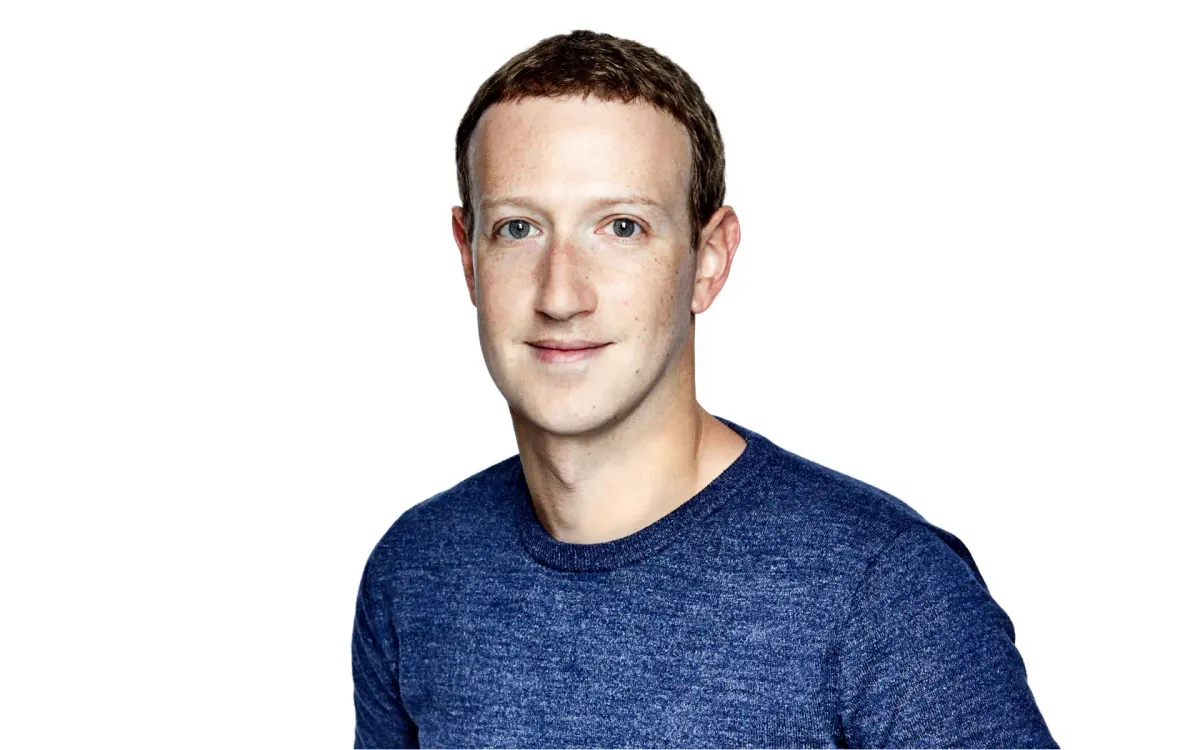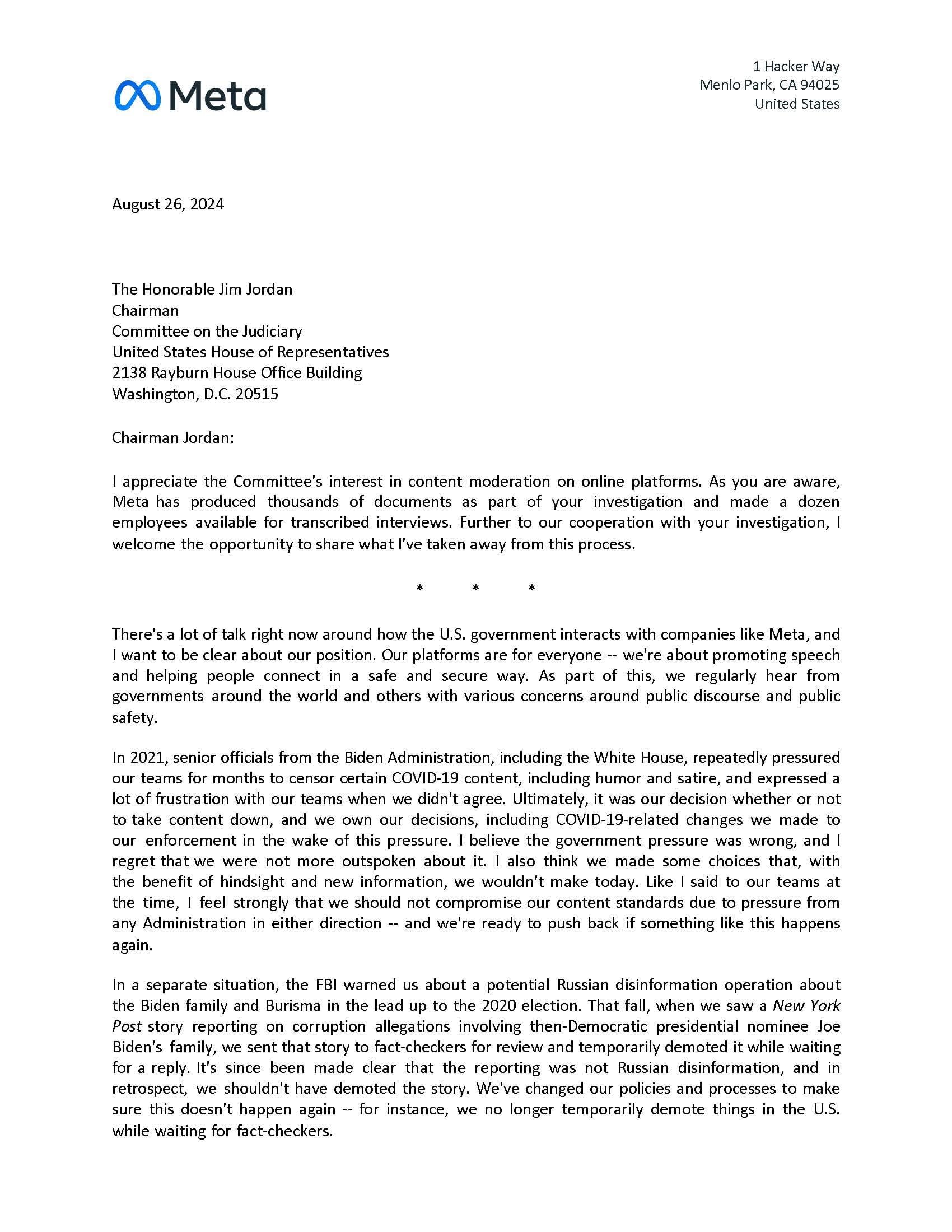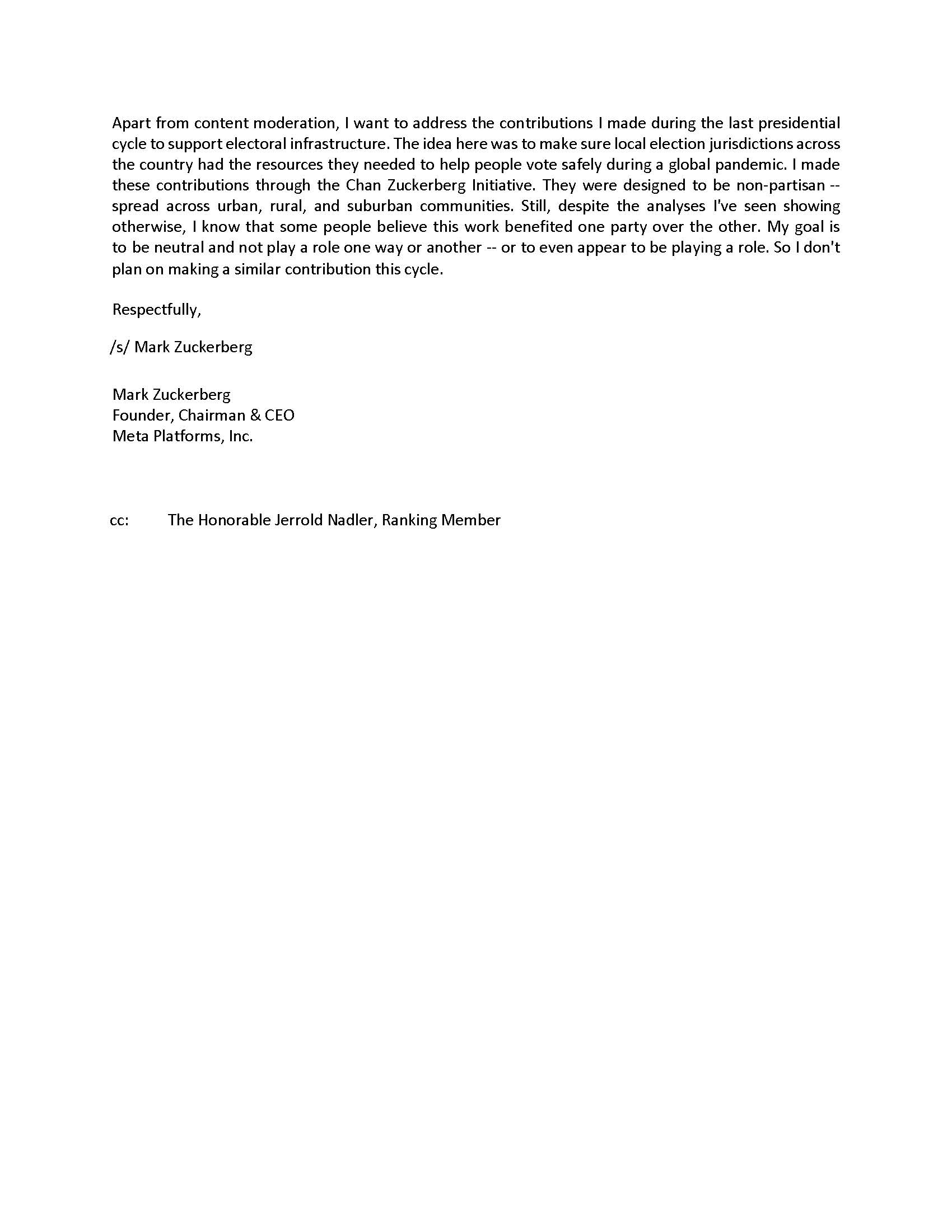

Mark Zuckerberg, the Founder, Chairman, and CEO of Meta Platforms, Inc., yesterday addressed critical issues concerning content moderation and electoral contributions in a letter to Jim Jordan, Chairman of the Committee on the Judiciary in the United States House of Representatives. This communication comes at a time of increased scrutiny for tech companies, as evidenced by the recent arrest of Telegram founder Pavel Durov in Paris on August 24, 2024.
Zuckerberg's letter, sent from Meta's headquarters in Menlo Park, California, acknowledges the Committee's interest in content moderation practices on online platforms. He notes Meta's extensive cooperation with the ongoing investigation, having produced thousands of documents and made numerous employees available for transcribed interviews. This level of engagement underscores the significance of the inquiry and Meta's willingness to participate in governmental oversight.


The timing of Zuckerberg's letter gains additional context when considered alongside the arrest of Pavel Durov, the founder and CEO of Telegram, a popular messaging app known for its emphasis on privacy and encryption. Durov was arrested in Paris as part of a cybercrime investigation. This development highlights the increasing pressure on tech platforms to address issues related to illegal activities conducted through their services.
Zuckerberg's letter delves into the complex relationship between the U.S. government and tech companies like Meta. He emphasizes that Meta's platforms are designed to promote free speech while maintaining a safe and secure environment for users. This delicate balance is at the heart of many debates surrounding social media regulation and the role of tech companies in public discourse – a discussion that now extends to messaging apps like Telegram in light of Durov's arrest.
One of the most striking revelations in Zuckerberg's letter concerns the pressure Meta faced from senior officials in the Biden Administration during 2021. According to Zuckerberg, these officials, including representatives from the White House, repeatedly pressed Meta to censor certain COVID-19 content, including humor and satire. The company faced significant frustration when it did not comply with these requests. Zuckerberg asserts that the decision to maintain or remove content ultimately rests with Meta, including the COVID-19-related changes made to their enforcement policies in response to this pressure.
This disclosure raises important questions about the appropriate boundaries between government influence and private company policies, especially when it comes to issues of free speech and public health information. The tension between combating misinformation and preserving open dialogue is evident in Zuckerberg's account of these interactions. Similar issues may be at play in the Telegram case, where the platform's commitment to user privacy has potentially conflicted with law enforcement efforts to combat cybercrime.
Zuckerberg's letter also addresses a separate incident involving potential Russian disinformation about the Biden family and Burisma in the lead-up to the 2020 election. He reveals that when the New York Post published a story reporting on corruption allegations involving then-Democratic presidential nominee Joe Biden's family, Meta sent the story to third-party fact-checkers for review. During this review process, the story's distribution was temporarily limited on Meta's platforms.
Zuckerberg acknowledges that this decision was later revealed to be misguided, as the reporting was not Russian disinformation. He states that Meta has since changed its policies and processes to prevent similar situations in the future. This incident highlights the challenges social media platforms face in real-time content moderation, especially during sensitive periods like elections.
The arrest of Pavel Durov adds another layer to the ongoing debate about content moderation and platform responsibility. Telegram, which boasts over 700 million active users worldwide, has faced criticism for its alleged role in facilitating illegal activities due to its strong encryption and privacy features. The cybercrime investigation leading to Durov's arrest, though details remain limited, suggests that law enforcement agencies are taking a more aggressive stance towards platforms that may inadvertently enable criminal activities.
Zuckerberg's letter transitions to discuss Meta's contributions to electoral infrastructure during the last presidential cycle. He emphasizes that these contributions, made through the Chan Zuckerberg Initiative, were designed to be non-partisan and aimed at helping local election jurisdictions across the country provide safe voting options during the global pandemic. Despite his intentions, Zuckerberg acknowledges that some people believe these contributions benefited one political party over another. As a result, he states that he does not plan to make similar contributions in the current election cycle.
This section of the letter touches on the broader issue of private funding for public election infrastructure. The controversy surrounding these contributions reflects the ongoing debate about the appropriate role of tech industry leaders in supporting democratic processes. In light of Durov's arrest, questions may arise about the influence and responsibilities of tech leaders beyond their immediate business operations.
Throughout the letter, Zuckerberg's tone is measured and diplomatic. He attempts to balance transparency about Meta's decision-making processes with a defense of the company's autonomy in content moderation. The letter provides insight into the complex challenges facing social media companies as they navigate government relations, content policies, and their role in democratic processes.
The arrest of Pavel Durov, occurring just days before Zuckerberg's letter, serves as a stark reminder of the global nature of these challenges. While Zuckerberg addresses Meta's interactions with U.S. officials, Durov's situation highlights the international scope of tech regulation and law enforcement efforts. It underscores the need for a global conversation about the balance between user privacy, platform responsibility, and legal compliance.
Key facts
Mark Zuckerberg's letter to Congress: August 26, 2024
Pavel Durov's arrest in Paris: August 24, 2024
Meta produced thousands of documents for the Congressional investigation
In 2021, senior Biden Administration officials pressured Meta to censor certain COVID-19 content
Meta temporarily limited distribution of a New York Post story about the Biden family in 2020
Zuckerberg made contributions to support electoral infrastructure during the last presidential cycle
Zuckerberg does not plan to make similar electoral contributions in the current cycle
Telegram has over 700 million active users worldwide
Durov's arrest is part of a cybercrime investigation, details of which are limited

